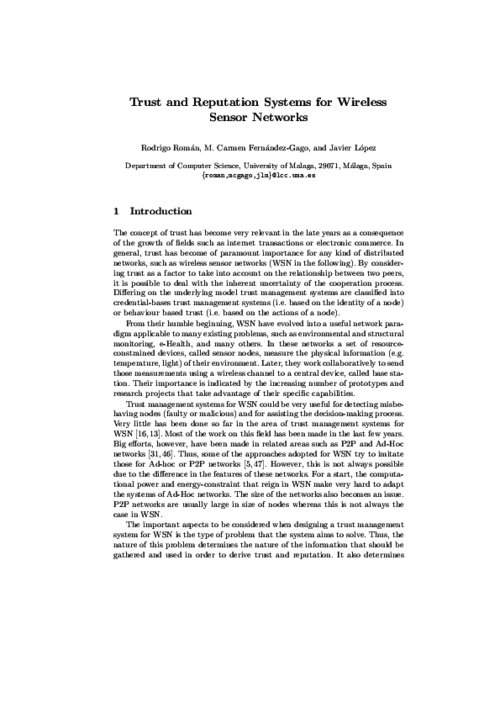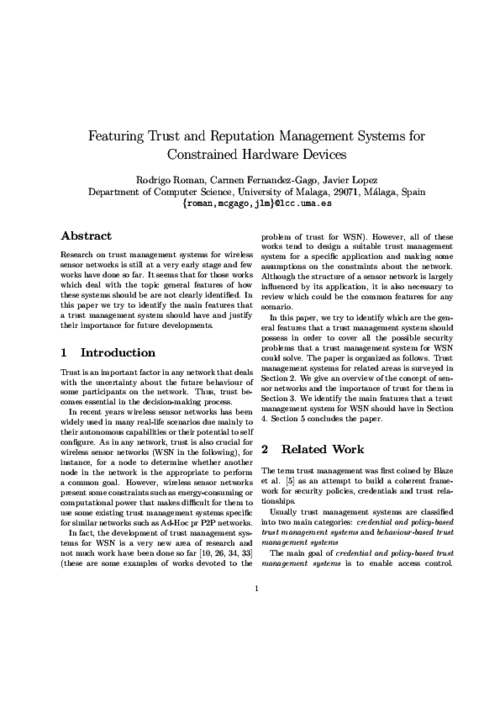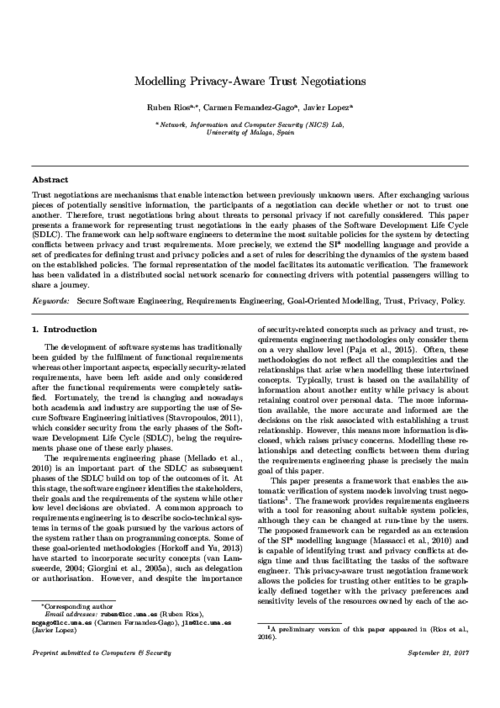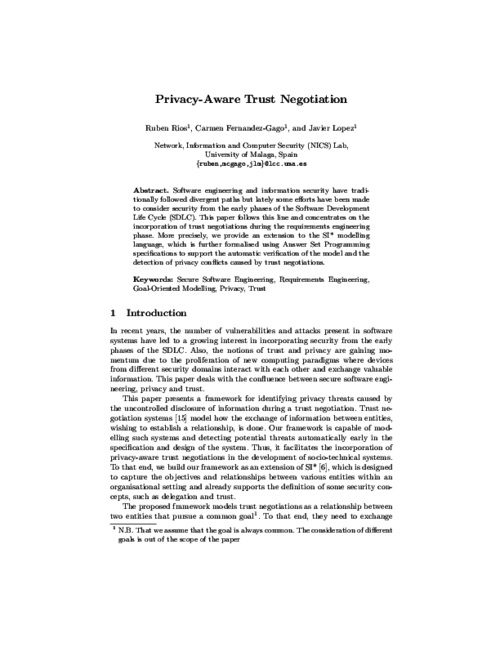 ] Title Type Year
] Title Type Year Security and Privacy in Mobile and Wireless Networking, S. Gritzalis, T. Karygiannis, and C. Skianis Eds., Troubador Publishing Ltd, pp. 105-128, 2009.
Abstract
The concept of trust has become very relevant in the late years as a consequence of the growth of fields such as internet transactions or electronic commerce. In general, trust has become of paramount importance for any kind of distributed networks, such as wireless sensor networks (WSN in the following). In this chapter of the book, we try to give a general overview of the state of the art on trust management systems for WSN and also try to identify the main features of the architectures of these trust management systems.

1st International Conference on Autonomic Computing and Communication Systems (Autonomics’07), ICST, October, 2007.
Abstract
Research on trust management systems for wireless sensor networks is still at a very early stage and few works have done so far. It seems that for those works which deal with the topic general features of how these systems should be are not clearly identified. In this paper we try to identify the main features that a trust management system should have and justify their importance for future developments.

Computers & Security, vol. 77 , issue August 2018, Elsevier, pp. 773-789, 2018. DOI
Abstract
Trust negotiations are mechanisms that enable interaction between previously unknown users. After exchanging various pieces of potentially sensitive information, the participants of a negotiation can decide whether or not to trust one another. Therefore, trust negotiations bring about threats to personal privacy if not carefully considered. This paper presents a framework for representing trust negotiations in the early phases of the Software Development Life Cycle (SDLC). The framework can help software engineers to determine the most suitable policies for the system by detecting conflicts between privacy and trust requirements. More precisely, we extend the SI* modelling language and provide a set of predicates for defining trust and privacy policies and a set of rules for describing the dynamics of the system based on the established policies. The formal representation of the model facilitates its automatic verification. The framework has been validated in a distributed social network scenario for connecting drivers with potential passengers willing to share a journey.

12th International Workshop on Security and Trust Management (STM), vol. LNCS 9871, Springer, pp. 98-105, 09/2016. DOI
Abstract
Software engineering and information security have traditionally followed divergent paths but lately some efforts have been made to consider security from the early phases of the Software Development Life Cycle (SDLC). This paper follows this line and concentrates on the incorporation of trust negotiations during the requirements engineering phase. More precisely, we provide an extension to the SI* modelling language, which is further formalised using answer set programming specifications to support the automatic verification of the model and the detection of privacy conflicts caused by trust negotiations.
